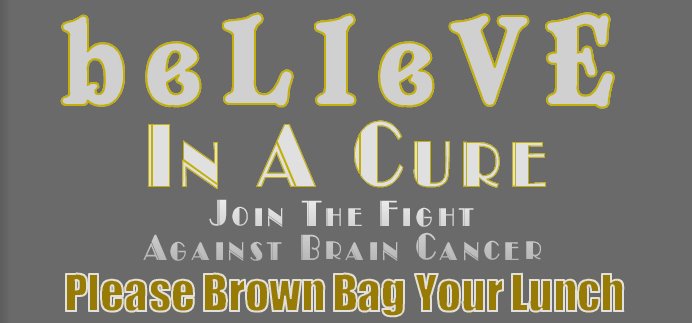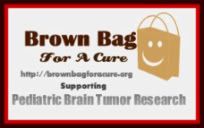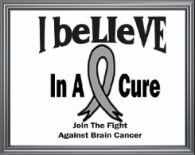Every day in this country, 46 children are diagnosed with cancer. And every day, the brothers and sisters of these children are thrust into a world of experiences that will leave a lasting mark on their lives forever.
This mark may be a positive influence to negotiate life moving forward or it may be a painful "scar" from which to heal. Over 10,000 new siblings are affected each year, as their brother or sister is diagnosed with cancer.
Siblings often feel insignificant and are left alone on the sidelines. We need to help these brothers and sisters feel special, important and recognized.
The following are the experiences and advice from several families on ways to help the brothers and sisters cope: Make sure that you explain cancer and its treatment to the siblings in terms that they understand. Create a climate of openness, so that they can ask questions and know that they will get answers. If you don't know the answer to a question, write it on your list to ask the doctor at the next appointment, or ask your child if he would like to go to the appointment with you and ask the question himself.
Make sure that all the children clearly understand that cancer is not contagious. They cannot catch it, nor can their ill brother give it to anyone else. Impress upon them that nothing the parents or brothers and sisters did caused the cancer.
Bring home a picture of the brother or sister in the hospital, and carry a tape recorder back and forth to relay songs and messages
It is very hard for mothers and babies or toddlers to be separated. Some families leave out family photo albums for the caregiver to show the toddler whenever she gets sad.
Try to spend time alone with each sibling.
If people only comment on the sick child, try to bring the conversation back to include the sibling. For example, if someone exclaims, "Oh look how good Lisa looks," you could say, "Yes, and Martha has an attractive new haircut, too. Don't you like it?"
Share your feelings about the illness and its impact on the family. Say, "I'm sad that I have to bring your sister to the hospital a lot. I miss you when I'm gone." This allows the sibling an opportunity to tell you how she is feeling. Try to make the illness a family project by expressing how the family will stick together to beat it
Include siblings in decision making on matters such as how chores will be done, or devise a schedule for parent time with the healthy children.
Allow siblings to be involved in the medical aspects of their sister or brother's illness, if they wish it. Often the reality of clinic visits and overnight stays are easier than what siblings imagine. Many siblings are a true comfort when they hold their sister or brother's hand during spinal taps or bone marrows.
Give lots of hugs and kisses.
Be sure to alert teachers of siblings about the tremendous stress at home. Many children respond to the worries about cancer by developing behavior or academic problems at school. Teachers should be vigilant for the warning signals, and provide extra support or tutoring for the stressed child or teen. Continue to communicate frequently with the teachers of the siblings to make sure you are aware of any developing problems.
Expect your other children to have some behavior problems as part of living with cancer in the family. This is a normal, not pathological, response.
The child with cancer receives many toys and gifts resulting in hurt feelings or jealousy in the siblings. Provide gifts and tokens of appreciation to the siblings for helping out during hard times, and encourage your sick child to share.
Encourage a close relationship between an adult relative or neighbor and your other children. Having a "someone special" when the parents are frequently absent can help prevent problems and help your child to feel cared for and loved.
Take advantage of any workshops, support groups, or camps for siblings. These can be of tremendous value for siblings, providing fun and friendships with others who truly understand their feelings.
After stating all of the above potential troubles that your children might experience, it is important to note that many siblings exhibit great warmth and active caretaking while their brother or sister is being treated for cancer. Their empathy and compassion seem to grow with the crisis. Some brothers and sisters of children with cancer feel that they have benefited from the stressful experience in many ways, such as increased knowledge about disease, increased empathy for the sick or disabled, increased sense of responsibility, enhanced self-esteem, greater maturity and coping ability, and increased family closeness. Many of these siblings mature into adults interested in the caring professions, such as medicine, social work, or teaching. Character can grow from confronting personal crisis, and many parents speak of the siblings with admiration and pride.
No matter how you put it...Cancer Sucks...Brain Tumors Suck and we must do all within our power to find a cure. The only way we can find a cure is by supporting research and research costs a lot of money. Please donate any amount you can to cancer research.



















